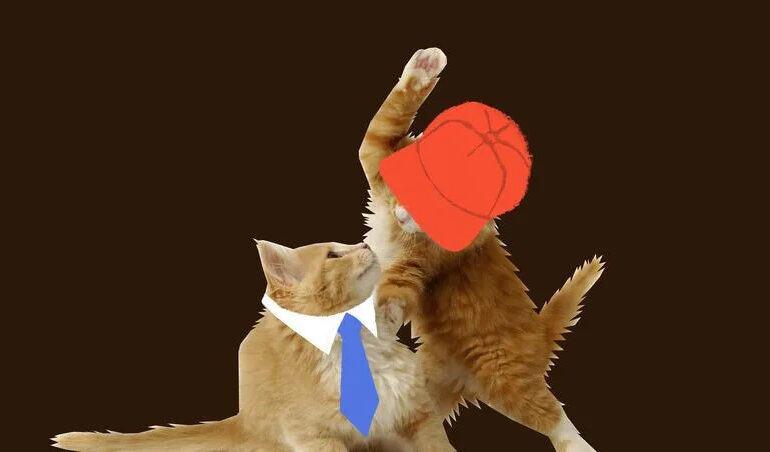Memes Ignite Political Battle as Shutdown Stalemates in D.C.

UPDATE: A political meme battle has erupted in Washington, D.C., as the government shutdown continues into its second month. The conflict ignited just after midnight on October 1, 2023, following an AI-generated video posted by former President Donald Trump that mocked Democratic leaders.
The video, which features a manipulated audio clip of Senator Chuck Schumer claiming, “nobody likes Democrats anymore,” has intensified the already heated atmosphere surrounding the ongoing shutdown. The shutdown has now lasted for over a month, with the Senate voting 13 times against a continuing resolution to reopen the government.
Political analysts describe the meme war as a crucial front in the larger struggle for public opinion. Matt Whitlock, a Republican strategist, stated, “Trump has closed the gap in communication battles, leaving Democrats struggling to respond effectively.” The chaotic and often humorous nature of the memes contrasts sharply with the serious implications of the government shutdown.
“The Democrats don’t know what to do in response,” said RealClearPolitics host Tom Bevan. “They can’t meme, and Republicans — especially Trump — have mastered the art.”
As the shutdown drags on, the political landscape has shifted with Republicans leveraging humor and sarcasm to their advantage. The Democratic Party attempted to counter with lighthearted content, including a video featuring kittens discussing the shutdown, but reactions were overwhelmingly negative. Comments on social media criticized the video as condescending and ineffective.
“It’s an embarrassing attempt at humor,” one user remarked, highlighting the disconnect between the intended message and public perception. In contrast, Trump’s meme strategies have resonated with his base, further entrenching his influence.
The stakes are high as the government remains closed. Many Americans are anxiously awaiting relief, and the ongoing meme warfare distracts from the serious economic and social issues at hand. For those affected by the shutdown, the battle of memes feels trivial amid growing financial uncertainty.
The meme conflict isn’t just a political spectacle; it reflects deeper divides in American society. As humor becomes a weapon, the question arises: can Democrats effectively reclaim the narrative? “Democrats still live in fear of being canceled by each other,” Whitlock noted, suggesting that political correctness stifles their creativity.
As the shutdown continues, both parties are expected to escalate their meme campaigns. With Trump at the helm of this digital battleground, the urgency for Democrats to adapt and respond grows. The implications of this meme war could extend beyond social media, influencing voter perceptions and engagement in the upcoming elections.
What happens next? The pressure mounts on both parties as they navigate the complexities of public sentiment while attempting to address the pressing issue of the government shutdown. Americans are watching closely, and the outcome of this battle may reshape political discourse in the coming months.
In the age of memes, the fight for political relevance is more crucial than ever. As the shutdown persists, will humor be the key to unlocking solutions, or will it serve as a distraction from the urgent needs of the American people?






